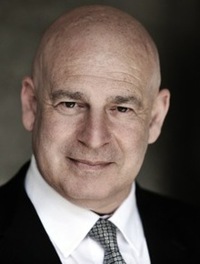Sports Events and the L-Word— Steven Falk
July 12, 2012
Londoners will soon be (literally) swimming in legacy. Alternatively, they will be able to run, cycle, row, reside, stroll, marvel and bask in the reflected glory of all the impressive infrastructure built for the Olympic Games and given over to public use once the circus leaves town. Much focus has be directed by LOCOG at making the London 2012 legacy something that will endure and deliver real value to the people who ultimately funded it through their taxes.
This is not always the case with major sporting events. The magnificent though largely empty World Cup venues in South Africa provide an expensive reminder of how the legacy concept can fail to deliver on its promise. And goodness knows what innovative uses the 120,000 male Qatari citizens eligible to attend public events will find for the 12 new stadia to be bequeathed to them after the World Cup in 2022.
Of course not every sports event has a legacy fixation. As English Premier League football teams prepare to embark on their traditional pre-season tours, this is one area where the idea of legacy is relegated to the economy seats the back of the plane. This month, EPL clubs will collectively travel 200,000 miles and play over 120 matches on four continents in pursuit of brand exposure and incremental revenue. The biggest clubs will rake in up to £2m in tour fees but how much of this will be invested to benefit local fans economies eager to host their footballing idols?
The answer is not much. With some creditable exceptions such as Chelsea FC’s Blue Pitch initiative, most touring clubs take the money and run. So the question is this. Why when major events direct so much focus onto the issue of legacy do most of the world’s leading football clubs pay it only lip service?
The simple answer is that legacy in the form of local infrastructure does not pay. It’s expensive to deliver and even more costly to maintain and run on an on-going basis.
There is another way though. Touring clubs and the EPL could invest in a programme of sports education. They could provide the means for local people to learn how to run effective coaching programmes and to improve local standards. Delegates nominated by the host FAs could learn best practise in sports administration, coaching, nutrition and sports science. They could engage in an organised and accredited process of knowledge transfer by which leading clubs and their National Associations could pass on the methods, techniques and administrative processes that have contributed to their success.
The cost of this approach is relatively low. Local people would benefit. And the reputation of touring clubs and the EPL would be enhanced.
Now that is a worthwhile legacy.
About Steven Falk:
A graduate in Psychology from Manchester University, Steven started his career in the motor industry before taking an MBA at Warwick University Business School. There followed commercial roles at Astra Zeneca, United Utilities, Great Universal Stores and MBNA Bank where he worked on a range of assignments in the UK, Eastern & Western Europe, North America and Asia.
From 2001 to 2009, Steven was Marketing Director at Manchester United Football Club. Steven served as a member of the Executive Committee of Manchester United and a board director of Manchester United Foundation, the club’s charitable trading arm. In January 2010, he launched Star Sports Marketing, a specialist sports marketing consultancy.
For a confidential conversation on how Star Sports Marketing can help you to devise and implement an effective brand strategy. Visit www.starsportsmarketing.com or email steven.falk@starsportsmarketing.co.uk



